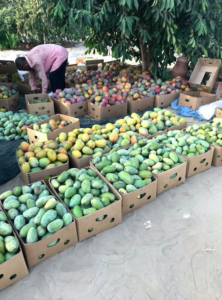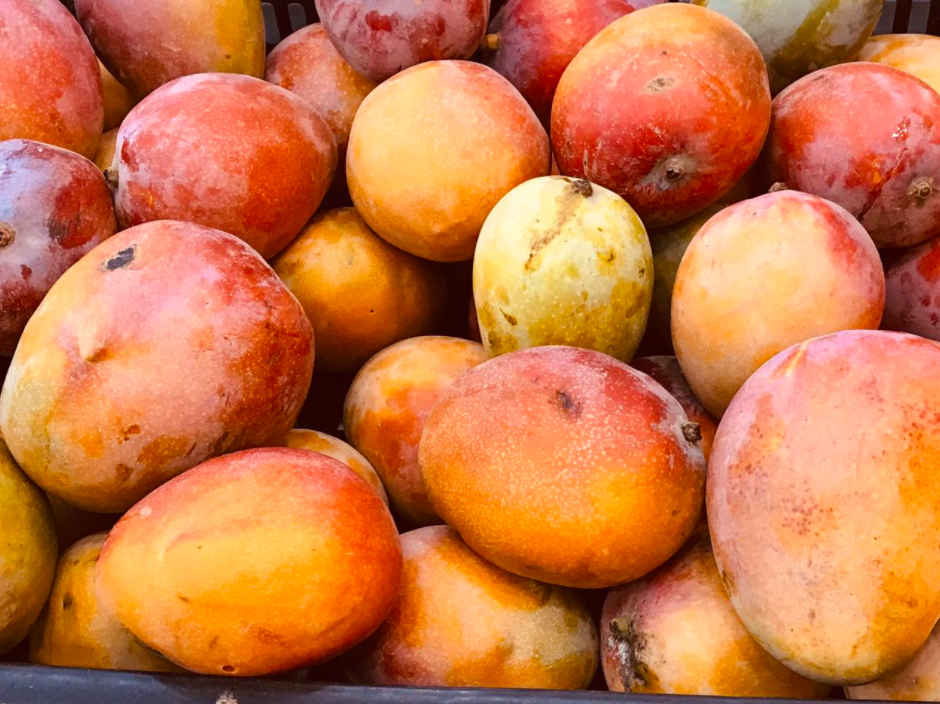São Paulo – Saudi Arabia’s western region is known for its high humidity and hot weather from its proximity to the Red Sea coast, which helps to grow an array of tropical fruits, including mango. The country is known for growing mango in many cities in the southern region such as Jazan city, where the soil is more likely to be fertile due to heavy rains. However, mango found its way to being grown in vast orchards in western and northern regions of Saudi Arabia, including Qunfudhah and Umluj city, Saudi newspaper Arab News reported.
With more than 400,000 mango trees in Qunfudhah, the city crop is ranked second in terms of significance in the country after Jazan. There are more than 2,700 mango farms in the city, and the annual yield exceeds 40,000 tons. The crop season begins in May and lasts for three months.
The director general of the Ministry of Environment, Water and Agriculture’s Makkah branch, Saeed bin Jarallah, said that the ministry is reinforcing its efforts to support agricultural festivals in the region for produce such as mango, rose and honey. “The ministry is working to support the cultivation of mango and tropical fruits by providing technical support to farmers in the region,” he told Arab News. The ministry is also working to bring tropical fruits specialists from the Food and Agriculture Organization of the United Nations and many universities to contribute to the development of mango production and cultivation.

Mango cultivation began in Qunfudhah 50 years ago, and 10 mango festivals have been held in the city since 2010. These events support farmers in marketing their products, introducing them to visitors from around the country and encouraging the cultivation to develop.
A mango farmer and owner of Al-Jawaher mango farms in Qunfudhah, Ali Al-Abdali has 12 years of experience in the field. He told Arab News that the traditional agriculture, such as growing grains and vegetables, was a source of living for his ancestors.
“However, after the government development in the agricultural sector and the spread of awareness programs, we got to know that this fruit and weather conditions of our region are considered ideal for tropical fruits, especially mangoes,” he said.
Al-Jawaher farms include over 30,000 mango trees. The farm produces 60 tons of mango crop per year of different types. Products are distributed domestically in large cities such as Riyadh, Jeddah, Qassim, Makkah, Taif, Hail and Madinah and can be found in many fruits and grocery shops in these cities.
Good watering with desalinated water, the quality of soil, high humidity, hot weather, and constant attention and follow-up are the main factors affecting the thriving cultivation of mangoes. Saudi mango trees are considered a natural destination for visitors and tourists.
According to Saudi Vision 2030, the Ministry of Environment, Water, and Agriculture is furthering organic agriculture by supporting farmers to produce organic, safe, high-quality food, thus preserving the environment and natural resources.
Mango trees in Umluj
Arab News visited one of the most famous mango farms in Umluj, Muhammadiah farm, owned by Marwan Al-Juhani and his brother Nawaf, who said that they inherited mango growing from their grandfather.
“We still have the very first mango tree on this farm that was planted by my grandfather over 65 years ago,” Al-Juhani told Arab News, noting that each mango tree must be at least four years old to start to produce mangoes, and the older it gets the better crop it gives.
The farm is only 10 minutes away from the Red Sea shores of Umluj city. Throughout the years, it has become a popular destination for visitors and tourists, who enjoy having a walk through the trees, picking mangoes and eating them on site.
With good watering crucial to mango growing, Al-Juhani has an artesian well to support watering their trees throughout the year. The farm has over 400 mango trees, and they have participated in several previous mango festivals.
Translated by Guilherme Miranda




